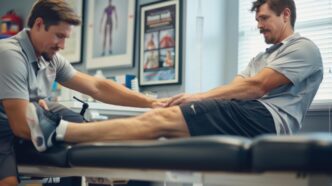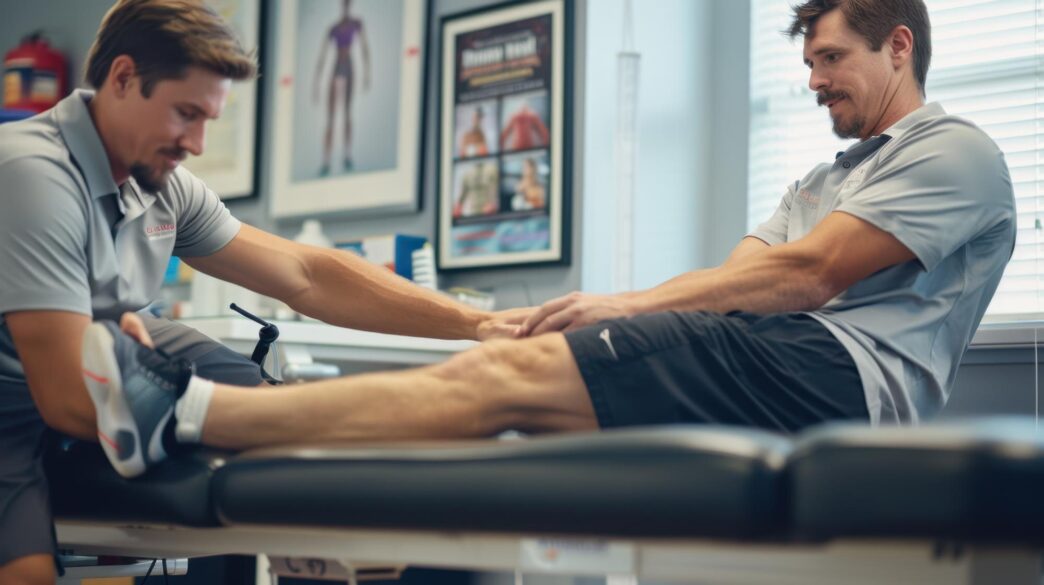A Quick Takeaway
The Story Behind the Trend
How to Make It Work for You
The Community View
For athletes and active individuals seeking to optimize their physical capabilities and prevent injuries, understanding how to find a sports-focused chiropractor is crucial. These specialized practitioners offer more than just spinal adjustments; they provide comprehensive care tailored to the unique biomechanical demands of athletic performance, helping individuals of all levels recover faster, perform better, and maintain long-term musculoskeletal health. By focusing on movement patterns, functional strength, and holistic recovery, a sports chiropractor can be an invaluable asset in any training regimen.
What is a Sports-Focused Chiropractor?
A sports-focused chiropractor is a doctor of chiropractic who has pursued additional training and specialization in sports medicine, rehabilitation, and athletic performance. Unlike general chiropractors who primarily address spinal alignment, these specialists possess a deeper understanding of sports-related injuries, biomechanics, and exercise physiology. Their expertise extends beyond the spine to include extremities like shoulders, hips, knees, and ankles, which are frequently impacted in athletic activities.
They often utilize a broader range of techniques, including soft tissue therapies, rehabilitative exercises, and functional movement assessments, in addition to traditional adjustments. Their goal is not just pain relief but also the restoration of optimal function, injury prevention, and enhancement of athletic performance. This specialized approach ensures that treatments are directly relevant to an athlete’s sport and physical demands.
Why Consider a Sports Chiropractor?
Engaging with a sports chiropractor offers numerous benefits for athletes, from weekend warriors to elite competitors. One primary advantage is effective injury management, as these practitioners are adept at diagnosing and treating common sports injuries such as sprains, strains, tendonitis, and overuse syndromes. They understand the specific stresses placed on the body during various sports and can develop targeted treatment plans.
Beyond injury recovery, a sports chiropractor plays a significant role in injury prevention by identifying and correcting biomechanical imbalances or movement dysfunctions before they lead to serious issues. By improving joint mobility, muscle balance, and nervous system function, they can help athletes move more efficiently and reduce their risk of future injuries. This proactive approach is essential for sustained athletic participation.
Furthermore, many athletes seek sports chiropractic care to enhance their overall performance. Optimizing spinal and joint mobility can lead to improved range of motion, better power output, and enhanced coordination, directly translating to better athletic prowess. Regular adjustments and functional rehabilitation can help the body adapt to training loads and perform at its peak potential.
When to Seek Care
Deciding when to consult a sports chiropractor depends on an individual’s specific needs and athletic goals. It is highly recommended for acute sports injuries, such as a sudden knee pain during a run or a shoulder issue after lifting weights, to get a proper diagnosis and start treatment promptly. Early intervention can significantly shorten recovery times and prevent chronic issues.
Athletes experiencing chronic pain or persistent issues that hinder their training or performance should also consider a sports chiropractor. If you have recurring hamstring tightness, persistent low back pain, or feel a “plateau” in your performance despite consistent training, these could be signs of underlying biomechanical problems. A specialist can identify and address these root causes.
Preventative care is another strong reason to seek out a sports chiropractor, even without current pain or injury. Regular check-ups and maintenance treatments can help identify potential issues before they manifest as pain, ensuring your body remains optimally aligned and functional. This is particularly beneficial during intense training cycles or leading up to major competitions.
Finding the Right Sports-Focused Chiropractor
Selecting the ideal sports-focused chiropractor requires careful consideration to ensure you receive the best possible care. Start by looking for practitioners with specific post-graduate certifications in sports chiropractic, such as a Certified Chiropractic Sports Physician (CCSP) or a Diplomate of the American Board of Sports Physicians (DABSP). These credentials indicate specialized training and expertise.
Experience with athletes and specific sports is also a critical factor. Inquire about their experience treating conditions relevant to your sport or activity level. A chiropractor who works with runners will have different insights than one who primarily treats weightlifters, though many possess broad knowledge. Ask about their approach to patient care, including whether they integrate rehabilitation exercises, soft tissue work, or other modalities.
Referrals can be incredibly valuable; ask coaches, athletic trainers, physical therapists, or fellow athletes for their recommendations. Online reviews and professional organizations can also provide leads. Ultimately, good communication and a collaborative approach are key; the right chiropractor should listen to your concerns, clearly explain their findings, and work with you to develop a personalized treatment plan.
What to Expect During a Visit
Your initial visit to a sports-focused chiropractor will typically begin with a comprehensive history taking and physical examination. They will ask about your athletic background, training regimen, past injuries, and current symptoms, gaining a full picture of your health. The physical exam will involve assessing your posture, gait, range of motion, muscle strength, and specific orthopedic tests.
Based on their findings, the chiropractor will explain their diagnosis and propose a tailored treatment plan. This plan might include spinal adjustments, extremity adjustments, various soft tissue techniques (like Graston or Active Release Technique), therapeutic exercises, and modalities such as electrical stimulation or ultrasound. They will often demonstrate exercises you can do at home to support your recovery and performance goals.
Follow-up visits will focus on implementing the treatment plan, monitoring your progress, and making adjustments as needed. The goal is not just to fix the immediate problem but to empower you with the knowledge and tools to maintain your body’s optimal function and prevent future issues. Expect a dynamic and interactive approach to your care.
Integrating Chiropractic Care into Your Training
Incorporating sports chiropractic care into your broader training and wellness routine can significantly amplify your results. View your chiropractor as a key member of your performance team, alongside coaches, trainers, and nutritionists. Regular communication between these professionals ensures a cohesive and integrated approach to your health and athletic development.
By addressing musculoskeletal imbalances and optimizing nervous system function, chiropractic care complements other aspects of your training, such as strength and conditioning, flexibility work, and recovery protocols. It helps your body adapt more effectively to physical demands, reduces recovery time, and allows you to push your limits safely. This holistic integration fosters a truly sustainable approach to peak performance.







